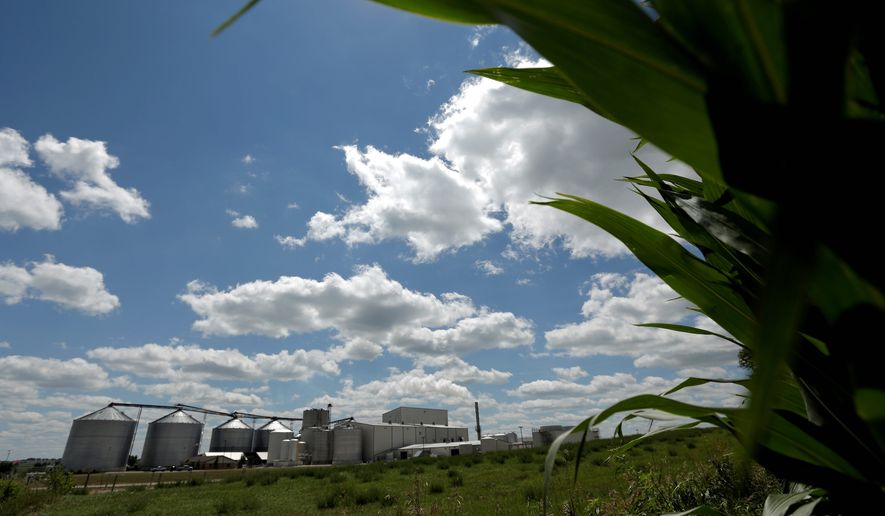He has vowed to slash environmental regulations and promote U.S. oil and gas development, but President Trump is under intense pressure to make an exception for the federal Renewable Fuel Standard, which has spawned the country’s attachment to ethanol.
During the campaign Mr. Trump vowed to protect the RFS, assuring voters in corn-rich Iowa that he was a believer in the beleaguered program, which requires increasing amounts of ethanol — usually made from corn — to be blended into the nation’s fuel supply each year.
While the new president hasn’t publicly backed off of his campaign pledge, his pick for administrator of the Environmental Protection Agency, Oklahoma Attorney General Scott Pruitt, has been a vocal opponent of the RFS, creating confusion as to exactly where the administration stands on the issue.
For RFS proponents, the future of the U.S. ethanol industry depends largely on Mr. Trump sticking to his campaign promise, though they admit the future of the program is unclear.
“I think there is reason for concern, of course. If you look at what the president said and his Cabinet choices, there’s obvious reason for concern that extends beyond Scott Pruitt,” said Brooke Coleman, executive director of the Advanced Biofuels Business Council, referring to Mr. Trump’s broader position of favoring the free market over federal regulation in the energy sector.
“He’s the president of the United States, and he made a firm commitment. It was not a vague commitment,” Mr. Coleman said. “We do trust he’s going to keep the commitment. He seems pretty committed to doing what he said he would do and not throwing his supporters under the bus, even if some of these positions are unpopular, and even if some of his advisers don’t like the RFS.”
Indeed, Mr. Trump’s commitment during the campaign was unambiguous. He didn’t just pay lip service to ethanol during the run-up to the Iowa caucuses in January 2016; he expressed strong support for the industry in the final days of his general election campaign against Democrat Hillary Clinton.
“We’re going to protect corn-based ethanol,” then-candidate Trump said at a November rally in Iowa, days before his victory over Mrs. Clinton.
But the Renewable Fuel Standard, while a boon for the biofuels sector since it was established by Congress in 2007, is an easy target for critics, and it’s unlikely they’re going to let up just because of Mr. Trump’s victory.
The 2007 legislation set out specific amounts of biofuels to be blended into the nation’s fuel supply each year, but the program has consistently fallen short of those benchmarks.
In November, after Mr. Trump’s election but before then-President Obama left office, the EPA set a 2017 target of at least 19.28 billion gallons of ethanol and other biofuels to be blended into the nation’s fuel. That’s an increase over 2016’s target of 18.11 billion gallons, but is far below the 24 billion-gallon target set out by Congress 2007.
A Government Accountability Office report also released in November said the RFS faces a bleak future, saying there’s little incentive for more biofuels production given the current low cost of domestic oil and gas — a product of the U.S. shale drilling boom.
The government watchdog also said the RFS has failed to deliver the level of greenhouse gas reduction initially envisioned by its supporters.
It’s those concerns, among others, that led Mr. Pruitt to deem the entire program “unworkable.”
During his confirmation hearings last month, however, Mr. Pruitt took a different approach and indicated he’d carry out the program, provided lawmakers don’t abolish it entirely through new legislation. He also made clear he’s open to changing the RFS to bring its targets more in line with reality.
Analysts say that once Mr. Pruitt assumes office at the EPA, there’s an opportunity to mold his position in line with that of Mr. Trump, potentially keeping the RFS in place but making changes so the program doesn’t consistently fall short of legally established targets.
“As a candidate on the campaign trail, Donald Trump expressed his strong support for biofuels, but I don’t believe he suggested that the current renewable fuel standard is without flaws,” said Scott Segal, an attorney at Washington’s Bracewell Law Firm who specializes in energy and environmental law. “Indeed, correcting those flaws can place biofuels production in the United States on firmer footing, particularly as the mandatory increases in renewable volume obligations are set to expire in 2022. Scott Pruitt has not opposed biofuels as an important part of the motor fuels picture.”
But the Trump administration may run into trouble just by seeking to change the RFS. On the campaign trail, the president said he’d work to help the U.S. achieve full energy independence, suggesting that the RFS was a useful tool in moving toward that goal.
For RFS supporters, that means keeping the ambitious blending targets exactly where they are.
“I’m not going to advocate tweaking the RFS,” said Emily Skor, CEO of Growth Energy, which represents ethanol producers and supporters. “It’s served the consumer well. It’s gotten more renewable fuel into the fuel supply. It’s helping ensure consumers have access to high octane that’s cheap.”
• Ben Wolfgang can be reached at bwolfgang@washingtontimes.com.




Please read our comment policy before commenting.